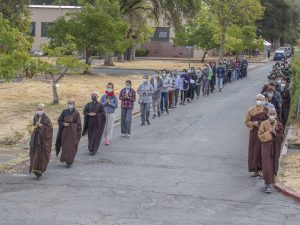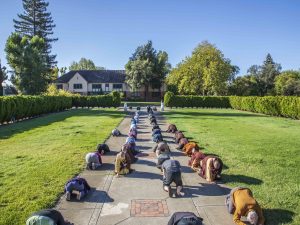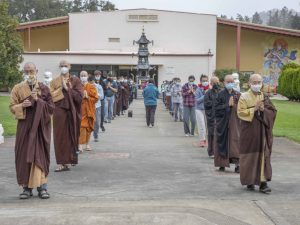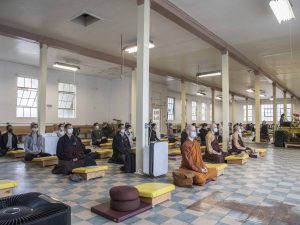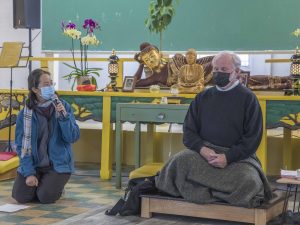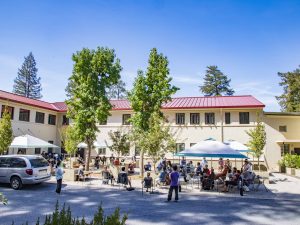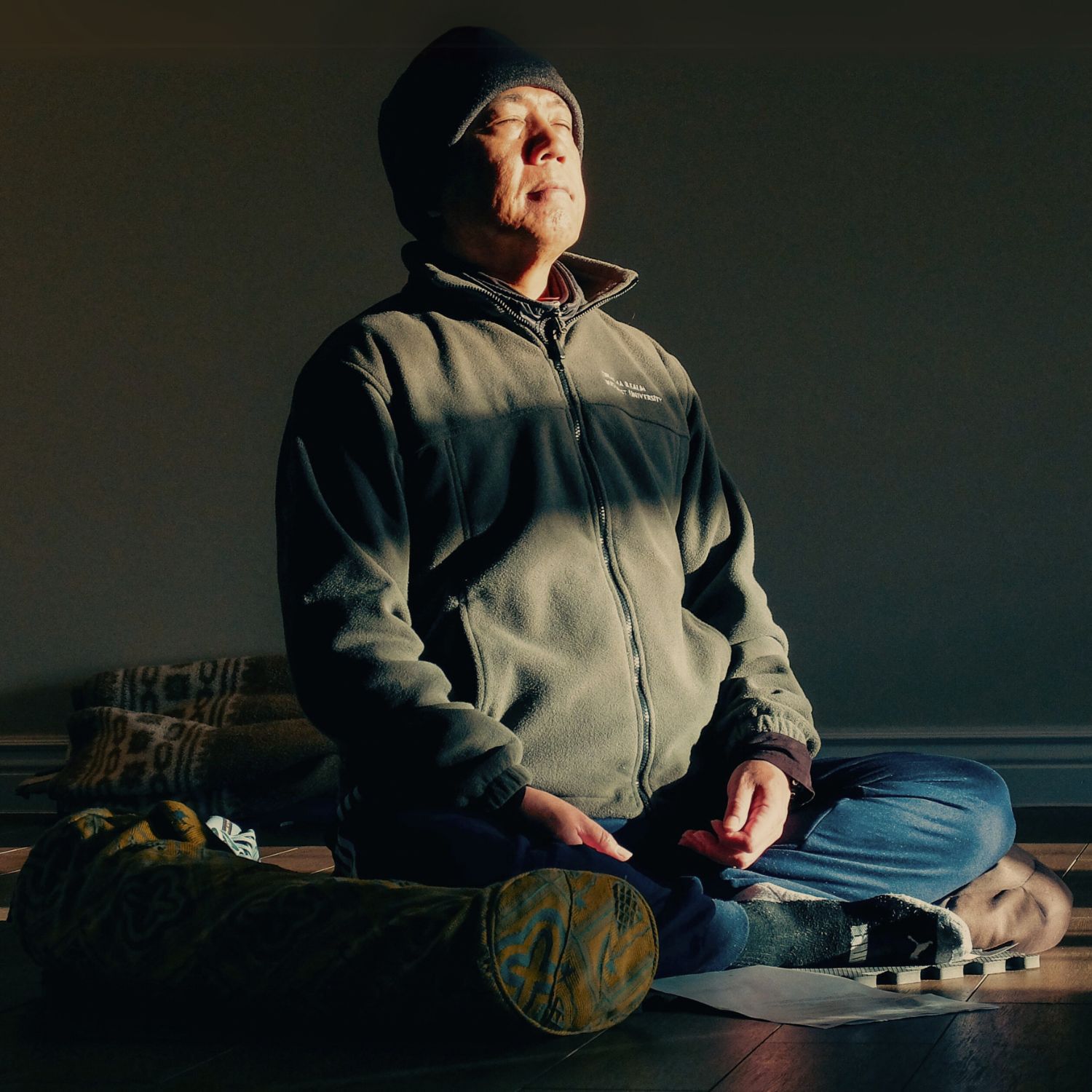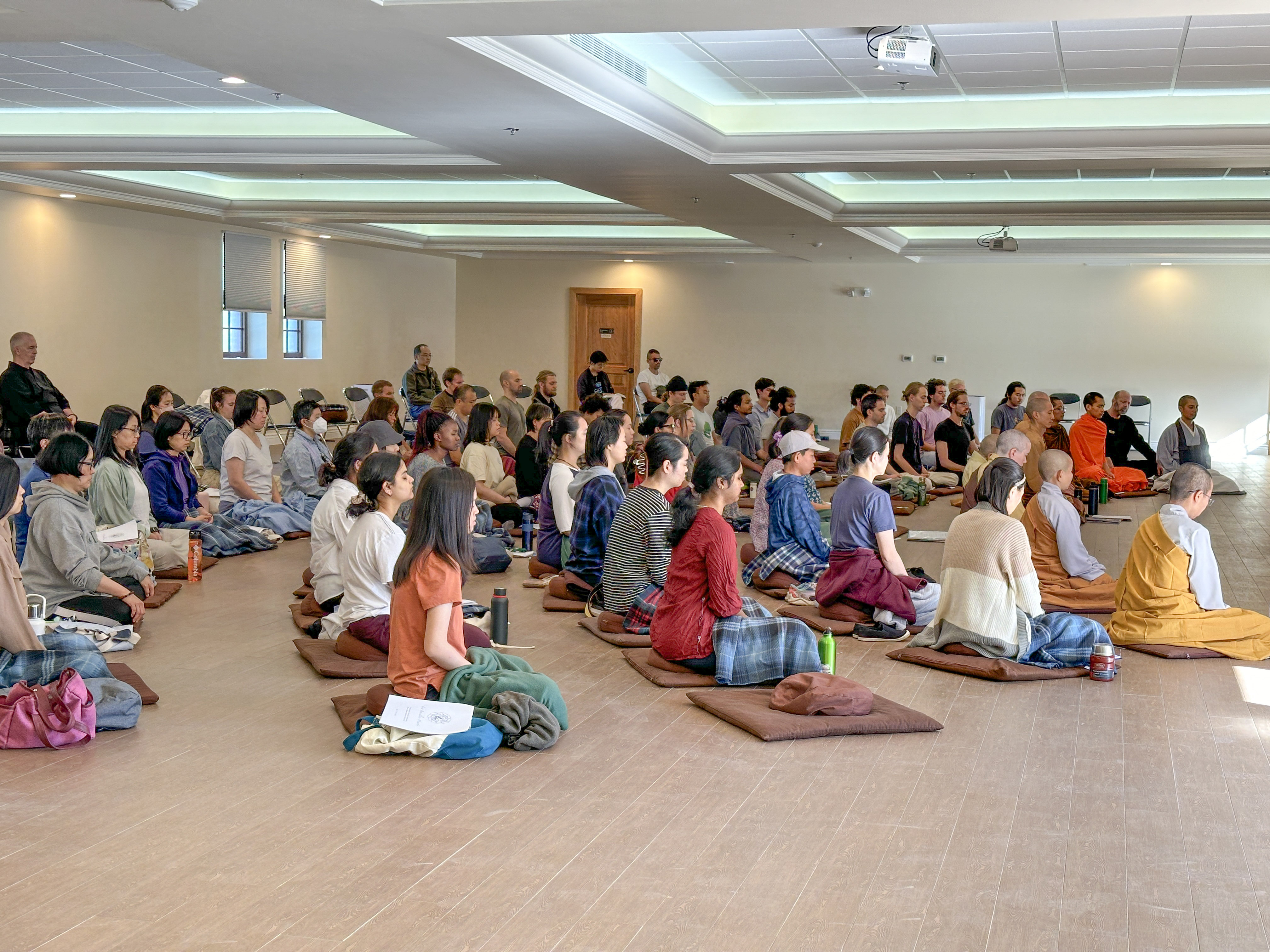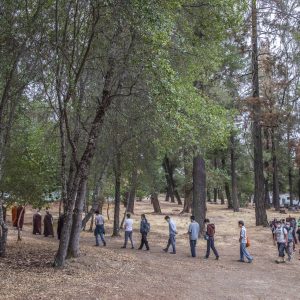
A Homecoming to Myself: Reflections on the Contemplative Exercise Immersion Week
Returning, Repenting, Renewing.
Gratitude, gratitude, gratitude! Opening, softening, humbling.A procession of students, faculties, and monastics walk silently, observing each step and breathing. We walk to the front of the Buddha Hall. We bow in unison.
Bowing, we return. Bowing, we repent. Bowing, we renew.
Last week, there were no classes, discussions or assignments in DRBU. Rather, the whole community spent almost nine hours every day together in contemplation. Most students and faculties observed silence. While walking, sitting, eating, bowing, we practiced contemplation. It was contemplative exercise immersion (CEI) week! Martin Verhoeven, the dean, shared with the community the meaning of contemplation. He described contemplation as the act of being more receptive to what is happening. Some of us have been reading texts from various contemplative traditions. This week, we went from reading to living these ideas. We slowed down our lives to observe better, listen deeper, and connect closer with the heart-mind. Going through such an immersive experience together with the whole college community was a very new experience to some of us. This experience brought us all together as a community of people dedicated to each other’s utmost good. Throughout the CEI, the theme of “relationship” stood out for me.
The CEI started with Martin’s lecture on bowing. In one of these lectures, he asked us to examine the relationship we have with ourselves, with others, and with Nature. This was an interesting setting for such an examination. During the CEI, we were all in solitude together. That is to say, each person was with themselves — observing their own thoughts and feelings, arising and passing. As we walked outside together and bowed outside together in Nature, we were also practicing solitude together in Nature. It became naturally easier to closely look at the relationship with oneself, with the others, and with Nature. Speaking from my experience, I noticed that I was able to better connect with my thoughts and feelings while observing outward silence. I was able to notice things that trigger me with relative objectivity. I was able to look at my reactions and tendencies without getting too caught up in them. There arose some relaxed spaciousness within me. From that space, I felt like I was able to observe the arisings and passings.
The CEI taught me to reconnect with that space within. It reinforced my faith in that spaciousness.
The second day, Martin invited us to investigate the relationship we have with others. I noticed how it is increasingly difficult for someone who is practicing self-observation not to project their observation on others. The tendency of “fault-finding” can be hard to overcome. I have struggled, and continue to struggle, with this tendency. I recalled how my close friends and family had a tough time being around me every time I came out of a silent retreat. I wondered then, how can I change this tendency? Is it even possible to change? As I was thinking about this, Martin’s words came to mind — “the essence of Buddhism is change.” The retreat, repentance, renewal, reflections are all done with the underlying possibility of change. Where and how does this change happen? Martin’s words again — “The greatest of things start in the smallest of places.” For me, that small place is a small space in my heart. During the CEI, I felt like I was given a chance to return to that space again. It was like a homecoming! The CEI was, in fact, DRBU’s homecoming!
